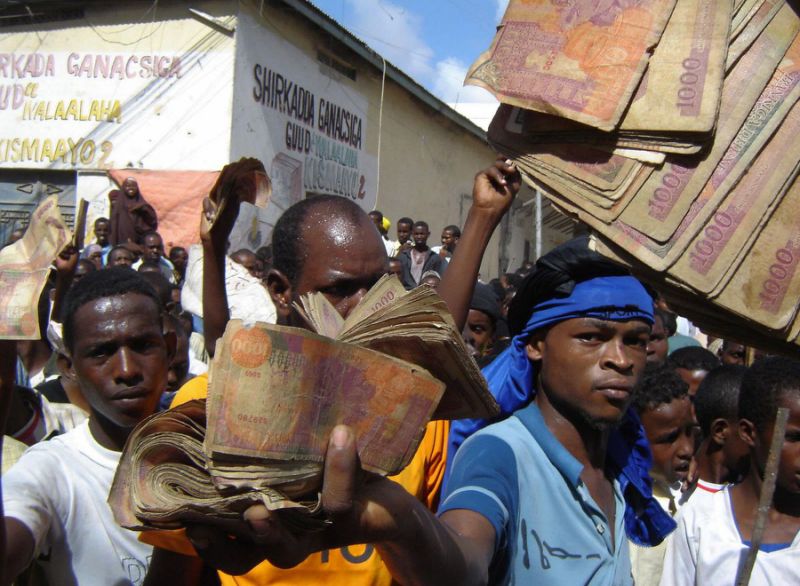A disquiet is simmering within the government and public circles after the leakage of information that the government had settled on a foreigner for the top job at the central bank, for the first time in the country’s history.
SomaliCoin a New Player has made Somali people question printing a new currency isn’t a solution. With the exchange 1:22,000 for the Somali shilling and 1:10,000 for the Somaliland shilling is it worth it even worth printing new shillings.
Sources privy to the selection process intimate that that indeed an outsider had been settled on, without divulging much on the individual. But this seems to not have gone down well with critics who argue that the country had sufficient skillset for the position.
Those supporting the government like famous author Harun Maruf argue that it was expertise that mattered not the nationality.
The revelation end speculations which have been on air since August last year as to who would replace Bashir Isse, who has been serving since April 2014. He previously held the position in interim roles from 2006 to 2010 and was reappointed in November 2013, but will now retire.
The division on opinion adds to the raft of challenges the new office holder will have to navigate to street the government banker and the economy at large to stability.
The new governor will be taking over at a time when the country is just on the verge of commencing the printing of official government banknotes for the first time in over two decades ending the long reign of counterfeit notes and unregulated monetary policy.
With footprints of two decades old civil war still visible in the country, Somali leaders have been working on means and ways to rid the country of the old counterfeit notes in place of new currency.
The new currency, is hopes, will help Somalia boost its economy. The new move to print money with security features will also prop the shilling’s value.
The new office holder will also have to impose measure to control Foreign Exchange Rate appreciation. In addition, Somalia does not have well-organized money and capital markets. The successful candidate will be tasked with steering the development of the banking and the financial system in the country.
Also in the in-tray will the task of promoting the process of economic growth and ensure adequate monetary expansion in the country.
Also to be seen is the office holders’ ability to maintain internal price stability by adopting a monetary policy that can control inflationary tendencies and ensure market stability.
The biggest challenge will be whether the CBS of Somalia will successfully integrate the traditional banking system with the mobile money economy, with over 70% of the population opting for the cashless banking method.
Critical in the implementation will be a pool of qualified staff to implement the policies. There is need for an a structured training programme and facilities that will help develop the necessary skillset of the future employees.

Leave a Reply